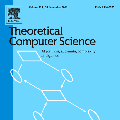The claw problem is central in the fields of theoretical computer science as well as cryptography. The optimal quantum query complexity of the problem is known to be $\Omega\left(\sqrt{G}+(FG)^{1/3} \right)$ for input functions $f\colon [F]\to Z$ and $g\colon [G]\to Z$. However, the lower bound was proved when the range $Z$ is sufficiently large (i.e., $|{Z}|=\Omega(FG)$). The current paper proves the lower bound holds even for every smaller range $Z$ with $|{Z}|\ge F+G$. This implies that $\Omega\left(\sqrt{G}+(FG)^{1/3} \right)$ is tight for every such range. In addition, the lower bound $\Omega\left(\sqrt{G}+F^{1/3}G^{1/6}M^{1/6}\right)$ is provided for even smaller range $Z=[M]$ with every $M\in [2,F+G]$ by reducing the claw problem for $|{Z}|= F+G$. The proof technique is general enough to apply to any $k$-symmetric property (e.g., the $k$-claw problem), i.e., the Boolean function $\Phi$ on the set of $k$ functions with different-size domains and a common range such that $\Phi$ is invariant under the permutations over each domain and the permutations over the range. More concretely, it generalizes Ambainis's argument [Theory of Computing, 1(1):37-46] to the multiple-function case by using the notion of multisymmetric polynomials.
翻译:暂无翻译




